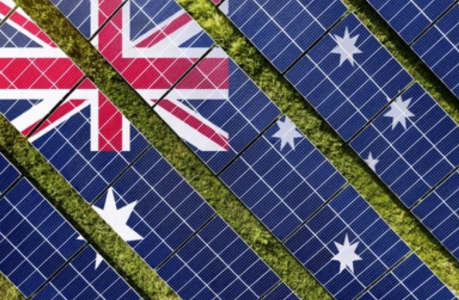Energy company admits misleading 400,000 Aussies, reveals impact on customers
By
Gian T
- Replies 0
You're not alone if you’ve ever tried to do your bit for the planet by signing up for a 'carbon neutral' energy plan.
More than 400,000 Australians joined Energy Australia’s 'Go Neutral' program, believing their electricity and gas usage was being offset and that they were helping to fight climate change.
But in a landmark move, Energy Australia has now admitted that their marketing may have been misleading—and they’ve issued a public apology to customers.
So, what happened? And what does it mean for you, your wallet, and the future of 'green' energy in Australia? Let’s break it down.
Launched in 2016, Energy Australia’s 'Go Neutral' program promised customers that the greenhouse gas emissions from their energy use would be offset—essentially, that for every tonne of carbon dioxide their household produced, the company would invest in projects (often overseas) that would 'cancel out' those emissions.
The idea was simple: you could keep using energy as usual but with a clear conscience.
But as it turns out, the reality was a bit more complicated.
In 2023, athe dvocacy group Parents for Climate took Energy Australia to the Federal Court, alleging that the company’s claims were misleading and deceptive.
Their argument is that buying carbon offsets—especially international ones—doesn’t actually 'undo' the harm caused by burning fossil fuels here in Australia.
Instead, it can give customers a false sense of security, making them believe they’re making a bigger difference than they really are.
This was the first time a major Australian energy company had been sued for 'greenwashing'—the practice of making products or services seem more environmentally friendly than they really are.
Rather than fight it out in court, Energy Australia settled the case and issued a statement that’s making waves across the country.
They admitted that carbon offsetting is not the most effective method to help customers cut their emissions.
They acknowledged that offsets do not undo the damage caused by burning fossil fuels.
Even when offsets are used, the emissions from fossil fuel use still contribute to climate change.
They apologised to any customers who felt misled by their marketing and stated that they are now shifting their focus to more direct and effective ways to support customers in reducing their emissions.
This admission is significant for several reasons.
Firstly, it marks the first time a major Australian energy company has openly acknowledged that carbon offsets aren’t a perfect fix.
Secondly, it could shift how companies market their 'green' products, making it clear that simply labelling polluting products as 'carbon neutral' is no longer enough.
Finally, this could impact your choices as a consumer—if you’ve been paying extra for a 'green' energy plan, it might be worth examining exactly what benefits you’re receiving.
Carbon offsets are credits that companies buy to 'cancel out' their emissions, usually by funding projects like tree planting or renewable energy overseas.
While these projects can be worthwhile, experts say they shouldn’t be used as a substitute for actually reducing emissions at the source.
As John Connor from the Carbon Market Institute put it, offsets should 'complement and enhance' climate policies—not replace real action.
Energy Australia says it participated in the government’s Climate Active certified carbon offset program 'in good faith.'
Still, it now recognises there’s 'legitimate public concern' about how effective these programs really are.
They’ve ended the Go Neutral program (as of July 2024) and say they’re now focused on helping customers directly cut their energy use and emissions.
If you were part of the Go Neutral program, you’re not alone—and you haven’t done anything wrong.
But it’s a good reminder to look beyond the marketing and ask questions about what 'carbon neutral' really means.
If you’re looking to reduce your environmental impact—and potentially lower your energy bills—there are a few practical steps you can take.
Switching to renewable energy plans that source power from wind, solar, or hydro is a good place to start.
Cutting down on energy use through small changes like using LED bulbs, choosing energy-efficient appliances, and turning off devices at the wall can also make a difference.
If you own your home, installing solar panels may be a smart long-term investment.
Finally, stay informed—ask your energy provider clear questions about where your power comes from and what they’re doing to reduce emissions.
 Were you part of Energy Australia’s Go Neutral program? Do you feel misled by 'green' marketing? What steps are you taking to reduce your own carbon footprint? We’d love to hear your thoughts and experiences—share them in the comments below.
Were you part of Energy Australia’s Go Neutral program? Do you feel misled by 'green' marketing? What steps are you taking to reduce your own carbon footprint? We’d love to hear your thoughts and experiences—share them in the comments below.
More than 400,000 Australians joined Energy Australia’s 'Go Neutral' program, believing their electricity and gas usage was being offset and that they were helping to fight climate change.
But in a landmark move, Energy Australia has now admitted that their marketing may have been misleading—and they’ve issued a public apology to customers.
So, what happened? And what does it mean for you, your wallet, and the future of 'green' energy in Australia? Let’s break it down.
Launched in 2016, Energy Australia’s 'Go Neutral' program promised customers that the greenhouse gas emissions from their energy use would be offset—essentially, that for every tonne of carbon dioxide their household produced, the company would invest in projects (often overseas) that would 'cancel out' those emissions.
The idea was simple: you could keep using energy as usual but with a clear conscience.
But as it turns out, the reality was a bit more complicated.
In 2023, athe dvocacy group Parents for Climate took Energy Australia to the Federal Court, alleging that the company’s claims were misleading and deceptive.
Their argument is that buying carbon offsets—especially international ones—doesn’t actually 'undo' the harm caused by burning fossil fuels here in Australia.
Instead, it can give customers a false sense of security, making them believe they’re making a bigger difference than they really are.
This was the first time a major Australian energy company had been sued for 'greenwashing'—the practice of making products or services seem more environmentally friendly than they really are.
Rather than fight it out in court, Energy Australia settled the case and issued a statement that’s making waves across the country.
They admitted that carbon offsetting is not the most effective method to help customers cut their emissions.
They acknowledged that offsets do not undo the damage caused by burning fossil fuels.
Even when offsets are used, the emissions from fossil fuel use still contribute to climate change.
They apologised to any customers who felt misled by their marketing and stated that they are now shifting their focus to more direct and effective ways to support customers in reducing their emissions.
This admission is significant for several reasons.
Firstly, it marks the first time a major Australian energy company has openly acknowledged that carbon offsets aren’t a perfect fix.
Secondly, it could shift how companies market their 'green' products, making it clear that simply labelling polluting products as 'carbon neutral' is no longer enough.
Finally, this could impact your choices as a consumer—if you’ve been paying extra for a 'green' energy plan, it might be worth examining exactly what benefits you’re receiving.
Carbon offsets are credits that companies buy to 'cancel out' their emissions, usually by funding projects like tree planting or renewable energy overseas.
As John Connor from the Carbon Market Institute put it, offsets should 'complement and enhance' climate policies—not replace real action.
Energy Australia says it participated in the government’s Climate Active certified carbon offset program 'in good faith.'
Still, it now recognises there’s 'legitimate public concern' about how effective these programs really are.
They’ve ended the Go Neutral program (as of July 2024) and say they’re now focused on helping customers directly cut their energy use and emissions.
If you were part of the Go Neutral program, you’re not alone—and you haven’t done anything wrong.
If you’re looking to reduce your environmental impact—and potentially lower your energy bills—there are a few practical steps you can take.
Switching to renewable energy plans that source power from wind, solar, or hydro is a good place to start.
Cutting down on energy use through small changes like using LED bulbs, choosing energy-efficient appliances, and turning off devices at the wall can also make a difference.
If you own your home, installing solar panels may be a smart long-term investment.
Finally, stay informed—ask your energy provider clear questions about where your power comes from and what they’re doing to reduce emissions.
Key Takeaways
- Energy Australia has apologised to more than 400,000 customers and settled legal action alleging it misled people by claiming its 'go neutral' program offset the harms of electricity and gas emissions.
- The company admitted that carbon offsets do not prevent or undo the environmental damage caused by burning fossil fuels and conceded their marketing may have been unclear.
- Advocacy group Parents for Climate, which brought the legal challenge, said the outcome sends a strong message that companies can no longer use greenwashing and should uphold higher standards of honesty about carbon-neutral claims.
- Both Energy Australia and industry groups now acknowledge there is legitimate public concern about whether carbon offset programs, including those certified by the government, are effective and should not detract from real efforts to cut emissions.








